|
AP Learning Objective:
Explain the causes and effects of policy debates in the early republic. Learning Target: I can explain why the War of 1812 was so politically divisive in the United States, & I can discuss its long-term consequences for the country. Critical Vocabulary: Louisiana Purchase, Meriwether Lewis, William Clark, Corps of Discovery, Sacajawea, Continental Divide, Aaron Burr, General James Wilkinson, Marbury v. Madison, Chief Justice Marshall, Judicial Review, Barbary Wars, Impressment, Chesapeake-Leopard Affair, Embargo Act of 1807, Non-Intercourse Act, Election of 1808, Tecumseh, “The Prophet,” William Henry Harrison, Battle of Tippecanoe, War of 1812, Henry Clay, War Hawks, Captain Oliver Hazard Perry, Burning of Washington, Fort McHenry, Francis Scott Key, "The Star Spangled Banner," General Andrew Jackson, Battle of New Orleans, Hartford Convention, Treaty of Ghent Today's Agenda:
Homework: The Age of Jefferson Reading
0 Comments
AP Learning Objective:
Explain the causes and effects of policy debates in the early republic. Learning Target: I can explain why the War of 1812 was so politically divisive in the United States, & I can discuss its long-term consequences for the country. Critical Vocabulary: Louisiana Purchase, Meriwether Lewis, William Clark, Corps of Discovery, Sacajawea, Continental Divide, Aaron Burr, General James Wilkinson, Marbury v. Madison, Chief Justice Marshall, Judicial Review, Barbary Wars, Impressment, Chesapeake-Leopard Affair, Embargo Act of 1807, Non-Intercourse Act, Election of 1808, Tecumseh, “The Prophet,” William Henry Harrison, Battle of Tippecanoe, War of 1812, Henry Clay, War Hawks, Captain Oliver Hazard Perry, Burning of Washington, Fort McHenry, Francis Scott Key, "The Star Spangled Banner," General Andrew Jackson, Battle of New Orleans, Hartford Convention, Treaty of Ghent Today's Agenda:
Homework: The Age of Jefferson Reading AP Learning Objective:
Explain the causes and effects of policy debates in the early republic. Learning Target: I can explain why the War of 1812 was so politically divisive in the United States, & I can discuss its long-term consequences for the country. Critical Vocabulary: Louisiana Purchase, Meriwether Lewis, William Clark, Corps of Discovery, Sacajawea, Continental Divide, Aaron Burr, General James Wilkinson, Marbury v. Madison, Chief Justice Marshall, Judicial Review, Barbary Wars, Impressment, Chesapeake-Leopard Affair, Embargo Act of 1807, Non-Intercourse Act, Election of 1808, Tecumseh, “The Prophet,” William Henry Harrison, Battle of Tippecanoe, War of 1812, Henry Clay, War Hawks, Captain Oliver Hazard Perry, Burning of Washington, Fort McHenry, Francis Scott Key, "The Star Spangled Banner," General Andrew Jackson, Battle of New Orleans, Hartford Convention, Treaty of Ghent Today's Agenda:
Homework: The Age of Jefferson Reading AP Learning Objective:
Explain how and why political ideas, institutions, and party systems developed and changed in the new republic. Learning Target: I can identify the key political events during the Age of Jefferson, and I can evaluate the impact each had on the size & scope of the federal government. Critical Vocabulary: Louisiana Purchase, Meriwether Lewis, William Clark, Corps of Discovery, Sacajawea, Continental Divide, Aaron Burr, General James Wilkinson, Marbury v. Madison, Chief Justice Marshall, Judicial Review, Barbary Wars, Impressment, Chesapeake-Leopard Affair, Embargo Act of 1807, Non-Intercourse Act, Election of 1808, Tecumseh, “The Prophet,” William Henry Harrison, Battle of Tippecanoe, War of 1812, Henry Clay, War Hawks, Captain Oliver Hazard Perry, Burning of Washington, Fort McHenry, Francis Scott Key, "The Star Spangled Banner," General Andrew Jackson, Battle of New Orleans, Hartford Convention, Treaty of Ghent Today's Agenda:
Homework: The Jeffersonian Democracy Reading AP Learning Objective:
Explain how and why political ideas, institutions, and party systems developed and changed in the new republic. Learning Target: I can identify the key political events during the Age of Jefferson, and I can evaluate the impact each had on the size & scope of the federal government. Critical Vocabulary: Louisiana Purchase, Meriwether Lewis, William Clark, Corps of Discovery, Sacajawea, Continental Divide, Aaron Burr, General, Marbury v. Madison, Chief Justice Marshall, Judicial Review, Barbary Wars, Impressment, Chesapeake-Leopard Affair, Embargo Act of 1807, Non-Intercourse Act, Election of 1808, Tecumseh, “The Prophet,” William Henry Harrison, Battle of Tippecanoe, War of 1812, Henry Clay, War Hawks, Captain Oliver Hazard Perry, Burning of Washington, Fort McHenry, Francis Scott Key, "The Star Spangled Banner," General Andrew Jackson, Battle of New Orleans, Hartford Convention, Treaty of Ghent Today's Agenda:
Homework: The Age of Jefferson Reading AP Learning Objective:
Explain how and why political ideas, institutions, and party systems developed and changed in the new republic. Learning Target: I can discuss the social, political, & economic challenges facing the new nation; & I can evaluate the government’s success in dealing with each. Critical Vocabulary: George Washington, John Adams, Alexander Hamilton, John Jay, Bill of Rights, “The First Report on the Public Credit,” “Elastic Clause,” Strict Interpretation, Loose Interpretation, Bank of the United States, Excise Tax, Whiskey Rebellion, Federalists, Democratic-Republicans, Neutrality Proclamation, Citizen Edmond Genêt, Jay’s Treaty, Pinckney’s Treaty, Little Turtle, Blue Jacket, General ‘Mad Anthony’ Wayne, Battle of the Fallen Timbers, Treaty of Greenville, Farewell Address, “The XYZ Affair,” Alien and Sedition Acts, Kentucky and Virginia Resolutions, Election of 1800, Twelfth Amendment Today's Agenda:
Homework: Jeffersonian Democracy Reading AP Learning Objective:
Explain how and why political ideas, institutions, and party systems developed and changed in the new republic. Learning Target: I can discuss the social, political, & economic challenges facing the new nation; & I can evaluate the government’s success in dealing with each. Critical Vocabulary: George Washington, John Adams, Alexander Hamilton, John Jay, Bill of Rights, “The First Report on the Public Credit,” “Elastic Clause,” Strict Interpretation, Loose Interpretation, Bank of the United States, Excise Tax, Whiskey Rebellion, Federalists, Democratic-Republicans, Neutrality Proclamation, Citizen Edmond Genêt, Jay’s Treaty, Pinckney’s Treaty, Little Turtle, Blue Jacket, General ‘Mad Anthony’ Wayne, Battle of the Fallen Timbers, Treaty of Greenville, Farewell Address, “The XYZ Affair,” Alien and Sedition Acts, Kentucky and Virginia Resolutions, Election of 1800, Twelfth Amendment Today's Agenda:
Homework: The Federalist Era Reading AP Learning Objective:
Explain how and why political ideas, institutions, and party systems developed and changed in the new republic. Learning Target: I can discuss the social, political, & economic challenges facing the new nation; & I can evaluate the government’s success in dealing with each. Critical Vocabulary: George Washington, John Adams, Alexander Hamilton, John Jay, Bill of Rights, “The First Report on the Public Credit,” “Elastic Clause,” Strict Interpretation, Loose Interpretation, Bank of the United States, Excise Tax, Whiskey Rebellion, Federalists, Democratic-Republicans, Neutrality Proclamation, Citizen Edmond Genêt, Jay’s Treaty, Pinckney’s Treaty, Little Turtle, Blue Jacket, General ‘Mad Anthony’ Wayne, Battle of the Fallen Timbers, Treaty of Greenville, Farewell Address, “The XYZ Affair,” Alien and Sedition Acts, Kentucky and Virginia Resolutions, Election of 1800, Twelfth Amendment Today's Agenda:
Homework: The Federalist Era Reading AP Learning Objective:
Explain how and why political ideas, institutions, and party systems developed and changed in the new republic. Learning Target: I can discuss the social, political, & economic challenges facing the new nation; & I can evaluate the government’s success in dealing with each. Critical Vocabulary: George Washington, John Adams, Alexander Hamilton, John Jay, Bill of Rights, “The First Report on the Public Credit,” “Elastic Clause,” Strict Interpretation, Loose Interpretation, Bank of the United States, Excise Tax, Whiskey Rebellion, Federalists, Democratic-Republicans, Neutrality Proclamation, Citizen Edmond Genêt, Jay’s Treaty, Pinckney’s Treaty, Little Turtle, Blue Jacket, General ‘Mad Anthony’ Wayne, Battle of the Fallen Timbers, Treaty of Greenville, Farewell Address, “The XYZ Affair,” Alien and Sedition Acts, Kentucky and Virginia Resolutions, Election of 1800, Twelfth Amendment Today's Agenda:
Homework: The Federalist Era Reading |
A life is not important except in the impact it has on other lives.
-Jackie Robinson AnnouncementsMarch 6: Bullitt Day
March 30-April 3: Spring Break ResourcesArchives
March 2020
|
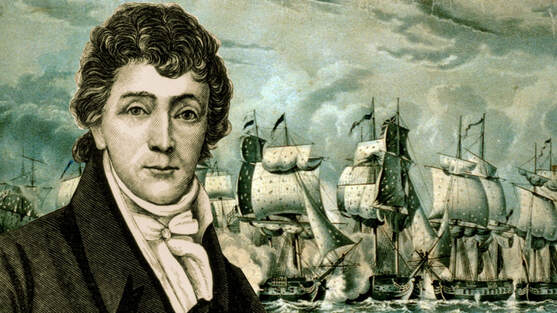
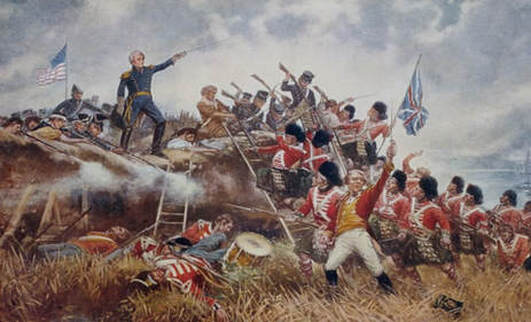
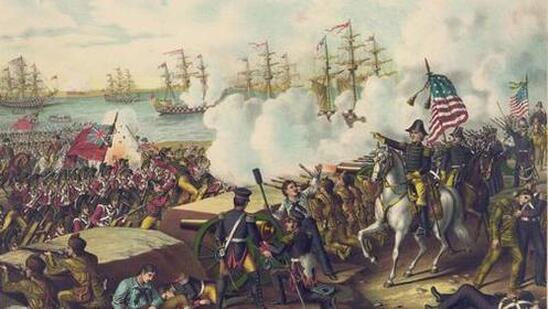
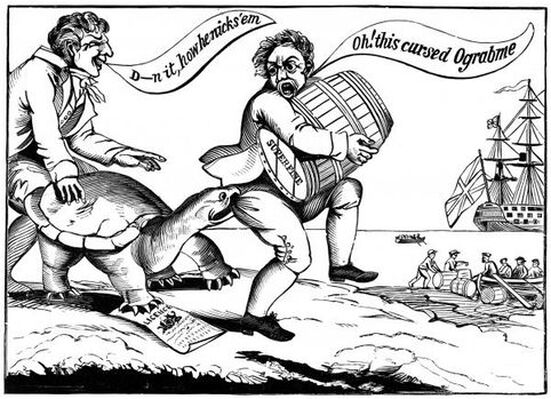
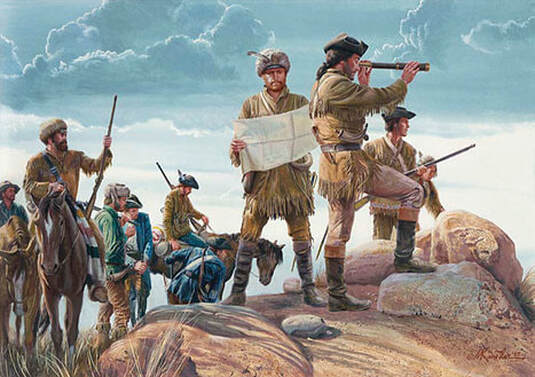
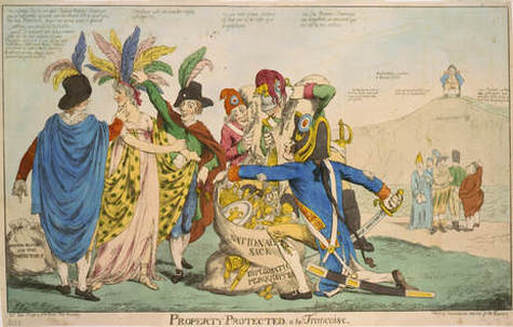
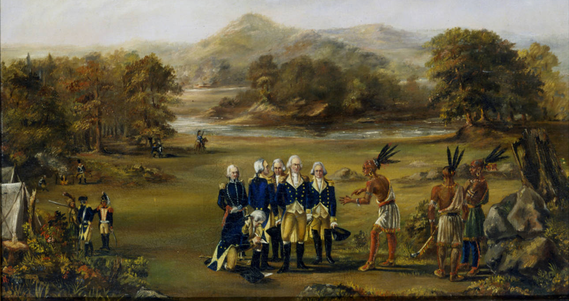
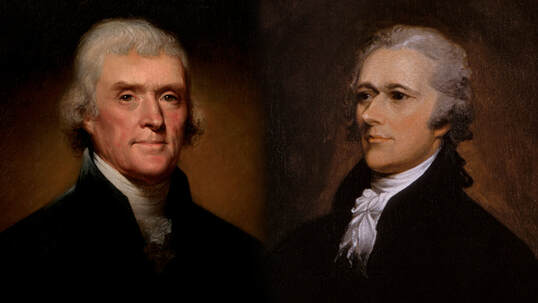
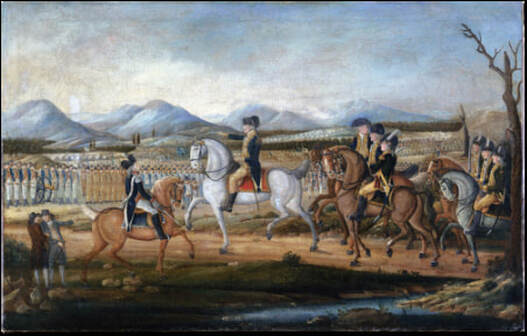
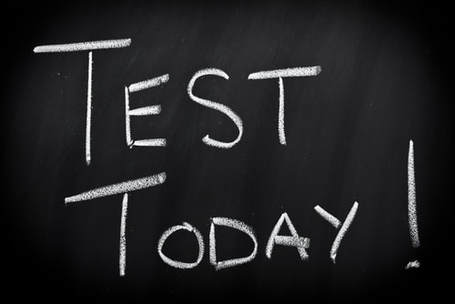
 RSS Feed
RSS Feed
